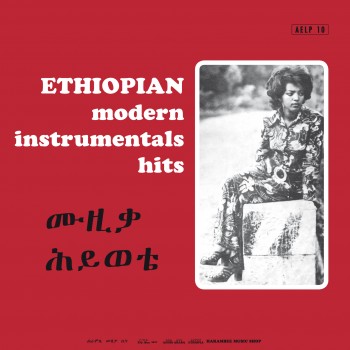 Reissue of the original ethiopian vinyl compilation
Reissue of the original ethiopian vinyl compilation
“Ethiopians’ deep-seated ethiocentrism, the legacy of a thousand years of history, has contributed in no small way to their music’s strong national identity, particularly impervious to any African influences. Latin influences, so pervasive in the great musical centers of West Africa and the Congo, have been similarly rebuffed, despite the brilliant attempts of a musician like Mulatu Astatke. He was the first and for a long time the only Ethiopian to have studied music abroad (England and USA). In the late ’60s, he brought back ‘ethio-jazz’, as well as a passion for Latin rhythms that was not readily shared by the Ethiopian audience. As early as 1966, he released a single and two LPs in the US entitled Afro-Latin Soul (and a third LP, Mulatu of Ethiopia in 1972), with his Ethiopian Quintet composed of American and Latin-American musicians (Worthy Records). That was three years before Fela’s first American tour and six years prior to Manu Dibango’s key breakthrough with the release of Soul Makossa in the Western ‘pre-World music’ market. All this goes to show how much the history of the African continent’s musical modernity should be reconsidered in light of the Ethiopian adventure, even though this lone spark bore little relation, musically or ideologically to the musical revolutions initiated most notably by Ghanian highlife, South African jazz, Congolese rumba or, much later on, by Fela.”
Réedition du vinyle original éthiopien
Les traditions ethiocentriques centenaires des ethiopiens est sans doute l’explication de leur forte identité musicale, assez imperméables aux autres influences africaines. L’influence de la musique latine, si importante dans l’afrique de l’ouest et le congo, a été repoussée en Ethiopie, malgré les brillants efforts de Mulatu Astatke. Il a été le premier et pendant longtemps le seul éthiopien avoir étudié la musique à l’étranger (Angleterre et USA). A la fin des années 60, il ramené l’«éthio-jazz», ainsi qu’une passion pour les rythmes latins qui n’était pas facilement partagées par le public éthiopien. Dès 1966, il a sorti un single et deux albums aux États-Unis intitulée « Afro latin soul » (et un troisième LP, Mulatu of Ethiopia en 1972), avec son Quintet éthiopien composéede musiciens américains et latino-américains (sur Worthy records). C’était trois ans avant la première tournée américaine de Fela et six ans avant la percée de Manu Dibango grace à son « soul Makossa » sur les marchés occidentaux. Tout cela pour montrer à quel point l’histoire de la modernité musicale du continent africain devrait être reconsidérée à la lumière de l’aventure éthiopienne, même si cette étincelle solitaire n’avait que peu de rapport, musicalement ou idéologiquement avec la ‘révolutions musicales initiées notamment par le highlife ghanéen, le jazz sud-africain, la rumba congolaise ou, beaucoup plus tard, par l’afro beat de Fela “.